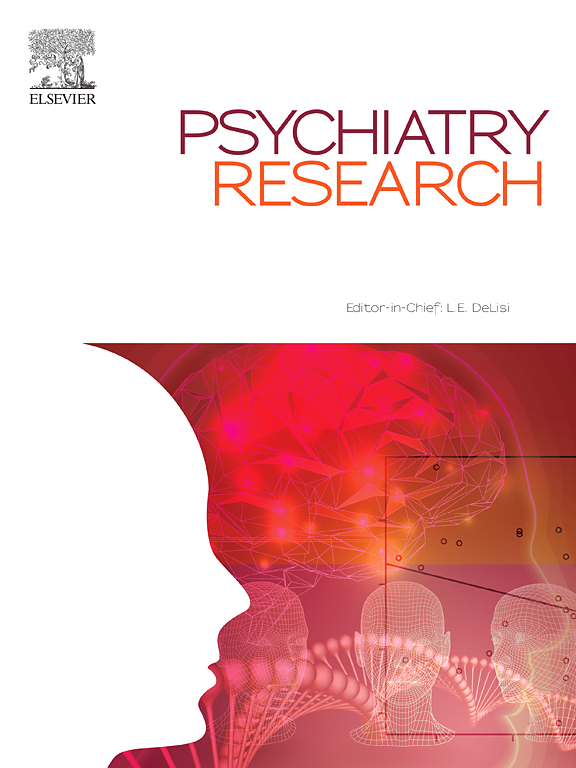Effectiveness of psychological interventions for mental health problems among war refugees: A systematic review and meta-analysis
IF 4.2
2区 医学
Q1 PSYCHIATRY
引用次数: 0
Abstract
Background
Globally 117.3 million people are displaced due to war, with one in five refugees experiencing psychological distress. Despite the availability of numerous psychological interventions for war refugees, their overall efficacy is still unexplored. Thus, this review examines the effectiveness of psychological interventions in reducing the mental health issues of war refugees.
Methods
A systematic search was conducted in PubMed, Web of Science, APA PsycNET, ScienceDirect and Google Scholar for studies published on the effectiveness of psychological interventions for mental health issues among war refugees in July 2024. JBI and NHLBI checklists were employed to appraise the risk of bias in the included studies. Review Manager version 5.4 was used to run the meta-analysis.
Results
Out of 22,197 initially identified records, a total of 21 studies were included for systematic review and eight randomized controlled trials (RCTs) for meta-analysis. Random effects meta-analysis showed significant medium effect size for psychological interventions (SMD = -0.69; 95 % CI:0.87, -0.51; p < .00001) in reducing the mental health issues among war refugees. Sub group analysis based on the mode of delivery revealed that interventions delivered through in-person mode reported a significant large effect size (SMD = -1.03; 95 % CI:1.36, -0.71; p < .00001) while, telehealth interventions showed significant small effect size (SMD = -0.44; 95 % CI:0.61, -0.28; p < .00001).
Conclusion
In-person and telehealth based psychological interventions offer promising findings in addressing mental health issues among war refugees. However, given the barriers to accessing face to face treatments and limited evidence on telehealth interventions, future research on digital interventions is recommended.
求助全文
约1分钟内获得全文
求助全文
来源期刊

Psychiatry Research
医学-精神病学
CiteScore
17.40
自引率
1.80%
发文量
527
审稿时长
57 days
期刊介绍:
Psychiatry Research offers swift publication of comprehensive research reports and reviews within the field of psychiatry.
The scope of the journal encompasses:
Biochemical, physiological, neuroanatomic, genetic, neurocognitive, and psychosocial determinants of psychiatric disorders.
Diagnostic assessments of psychiatric disorders.
Evaluations that pursue hypotheses about the cause or causes of psychiatric diseases.
Evaluations of pharmacologic and non-pharmacologic psychiatric treatments.
Basic neuroscience studies related to animal or neurochemical models for psychiatric disorders.
Methodological advances, such as instrumentation, clinical scales, and assays directly applicable to psychiatric research.
 求助内容:
求助内容: 应助结果提醒方式:
应助结果提醒方式:


